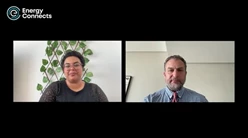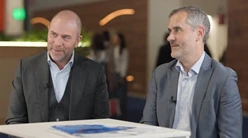How mentorship and inclusion are shaping energy’s next chapter
In an industry long defined by legacy and experience, the next era of energy leadership is being shaped by a generation that prizes sustainability as much as strategy. As the global energy transition accelerates, young professionals are no longer waiting in the wings; they are stepping forward, determined to redefine the rules of engagement in a world that demands cleaner, smarter, and more inclusive solutions.
At ADIPEC’s session “Next-gen Thinking: Empowering the Energy Leaders of Tomorrow”, the dialogue was a convergence of veterans and emerging voices united by one idea: that investing in people is as critical as investing in technology. Held amid the buzzing halls of ADNEC, the discussion served as a reminder that the future of energy leadership will not be handed down — it will be built collaboratively.
Moderator Gunjan Shroff opened the conversation with a question that lingered through the session: “How is it that we empower individuals to take on leadership roles in this particular sector?” Her tone was both curious and resolute, capturing ADIPEC’s forward-looking ethos.
“Everybody really needs to work together,” she added. “It’s not only about the two hands clapping together.” Her words set the tone for an hour of reflection on mentorship, innovation, and inclusion — the three pillars that will define the energy workforce of tomorrow.
“I think that the messaging of how you get people excited to join this industry is really critical. We talk a lot about sustainability, and who better to solve sustainability challenges than this industry, right?”
- Kristin Ruzicka, EVP Chief Human Resources, Officer and Sustainability at Weatherford
From academia’s perspective, Professor Ghassan Aouad, Chancellor at Abu Dhabi University, highlighted how early education holds the key to transformation. “It was really important for school kids at the age of five to start the talk about the energy sector and climate change,” he said, stressing that the foundations of sustainability must be laid long before university.
“We teach them a lot about mathematics, physics, chemistry. Sometimes they don’t need it — the idea is to make education more purposeful.” He explained that the UAE’s new outcome-based evaluation framework dedicates twenty percent of its focus to industry collaboration.
“Industry should contribute to curriculum development and delivery,” he said. “That will make a very big difference.” His remarks echoed the broader theme of partnership, between classroom and corporation, theory and practice.
Representing the voice of the global workforce, Molly Determan, President of the Energy Workforce & Technology Council, underscored the urgency of rebranding the industry to attract a values-driven generation. “Students entering the workforce really want to make an impact.
They want to know that their work matters,” she said. “We have a big job in educating people that if you want to be part of changing the world, powering economies, reaching a lower-carbon future and this is the place to do it.”
Determan pointed to a case study that proved the power of perception: “One of our companies changed the way they were advertising their jobs from oilfield services to innovators powering the world, and they saw a much higher rate of people applying for those internships.” The lesson was clear: the next generation is not motivated by hierarchy or titles but by purpose and authenticity.
Within the organisational sphere, Ayesha Al Hammadi, EVP of Group Talent Management and Organisation Excellence at ADNOC, offered a glimpse into how diversity and inclusion are shaping the company’s internal culture. “Our system, our policy enables every individual in this organisation, no matter what his background, his religion, or where he comes from, to thrive, achieve, and be recognised based on outcome,” she said.
Her words carried weight, reinforced by a decade of proof. “We have women engineers managing operations; we have entire sites run by women leaders for more than ten years. That tells you how serious we are.” Her statement underscored a transformation in ADNOC’s approach — from inclusion as a concept to inclusion as corporate infrastructure.
Meanwhile, Kristin Ruzicka, EVP Chief Human Resources, Officer and Sustainability at Weatherford, explored how digitalisation is reshaping workforce management itself. “Organisations are evolving very quickly,” she observed. “All functions need to evolve with the organisation and keep up, and hopefully, in some cases, even outpace it.” Ruzicka described HR’s shift from administrative support to strategic partnership.
“Now it’s about, how do I be a business partner? How do I help with conversations like this? It’s about understanding the changing needs of the workforce.” Her insight reflected a broader truth: that the success of the energy transition will depend not only on new technologies but on adaptive, tech-savvy people capable of navigating them.
As the session drew to a close, one could sense that this was not just another industry talk, it was rather a moment of generational alignment. The conversation flowed from education to inclusion, from rebranding to responsibility, weaving together the ambitions of a sector in flux.
What became clear was that the energy industry’s next chapter will not be written by the few but by the many — by professors and presidents, engineers and entrepreneurs, human-resources leaders and high-school students alike.





